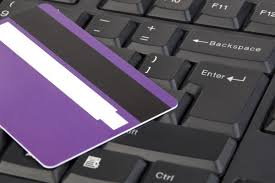For entrepreneurs and students of commerce, the development of local payment systems is often overlooked as a major contributor to progress in the region. The simple truth is that as money changes hands more quickly, sometimes called the velocity of turnover of capital in a society, the standard of living accelerates in tandem, as well. In Africa, many developing economies are in different stages of evolution from a payments perspective, but the process always starts at the merchant level.
The notion of a merchant account may be novel in many regions of the African continent, but it is the first step in a long path that ends with a vibrant local cardholder community, ready and willing to purchase goods and services at a retail establishment, online or even at a remote location. Smartphone technology is now allowing many developing countries around the world to leapfrog over the barriers of land-based communication systems and enter a new age where a vast majority of new consumers can enter the market and easily exchange value for merchandise.
The major card associations of Visa, MasterCard, and American Express have been cultivating emerging nations for decades, knowing full well where each one fell on the traditional evolutionary scale. In Africa, the early spadework necessary to set up merchant acceptance operations were left to large, international banks, like Barclays for example. These banks staked out the major destination points in each market and issued merchant accounts to airports, hotels, restaurants, and nearby merchants in order to serve international businessmen and tourists that carried their cards.
Fast forward way past the days of colonialism and early independence, and one finds that African payment systems have developed in a disparate fashion. Some, like South Africa, resemble any European nation from a card acceptance and issuance standpoint. Many others still have a way to go before local cardholders reach critical mass and provide more transactions than the occasional visitors from another land. From a merchant perspective, however, the message is clear when it comes to reasons why credit and debit cards can provide a boost to his sales. Three immediate reasons are:
– You will attract more customers. When you provide more options for payment than cash, you will naturally have people more willing to shop at your store;
– Your customers will buy more from you, since the cash in their pocket will no longer limit them. Whether they use credit or debit cards is a decision between them and their bank, but a guaranteed payment is all you need in the first place;
– Your customers will buy more often from you, as studies from time to time have proven in other markets.
As the market develops, merchant accounts will be offered either by banks directly or through third party agents known as merchant processors. These companies will process your sales ticket information, secure authorizations under standard guidelines, and then deposit funds in your bank account, less a small fee to cover the service. The beauty of the cell phone revolution is that authorizations are now easier to support, and remote transaction processing, directly from a smartphone application, is allowing commerce to be on-the-go, wherever cardholders are congregating.
How do you acquire a merchant account? It will depend on your market, but the Internet already has a wealth of information on the topic. As your market develops, various websites will provide comparative information to help you make a prudent choice. Firms like MerchantSeek exist today for this very purpose.
If you currently do not have a merchant account, the benefits are worthy of your consideration.








